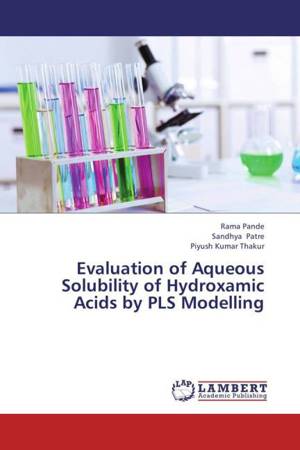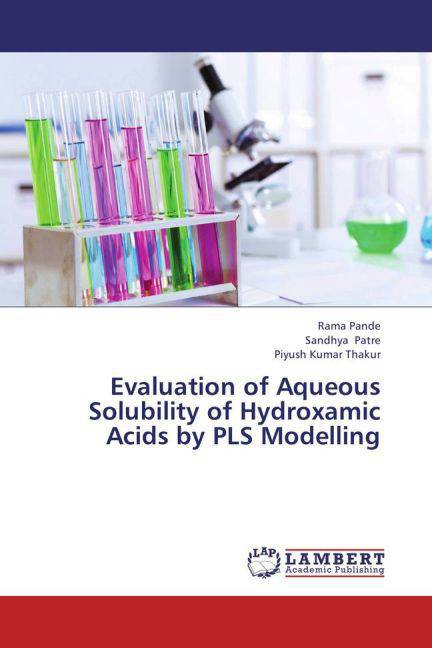
- Afhalen na 1 uur in een winkel met voorraad
- Gratis thuislevering in België vanaf € 30
- Ruim aanbod met 7 miljoen producten
- Afhalen na 1 uur in een winkel met voorraad
- Gratis thuislevering in België vanaf € 30
- Ruim aanbod met 7 miljoen producten
Zoeken
Evaluation of Aqueous Solubility of Hydroxamic Acids by PLS Modelling
Rama Pande, Sandhya Patre, Piyush Kumar Thakur
Paperback | Engels
€ 46,95
+ 93 punten
Omschrijving
The aqueous solubility of drugs plays a key role in pharmaceutical, environmental and biological processes. It is an important factor in the ADMET (absorption, distribution, metabolism, elimination and toxicity) research. Since the experimental determination of water solubility is time-consuming therefore, reliable computational predictions are used for the pre-selection of acceptable drug like compounds. The Partial Least Squares (PLS) regression is a statistical method that bears some relation to principal components regression. PLS finds a linear regression model by projecting the predicted variables and the observable variables to a new space. In the present study, PLS regression is employed to model quantitative structure-property relationship (QSPR) for the aqueous solubility of 24 drug like molecules, N-arylhydroxamic acids by applying 15 physico-chemical properties as molecular descriptors. The prediction results are acceptable.
Specificaties
Betrokkenen
- Auteur(s):
- Uitgeverij:
Inhoud
- Aantal bladzijden:
- 68
- Taal:
- Engels
Eigenschappen
- Productcode (EAN):
- 9783659308345
- Verschijningsdatum:
- 25/04/2013
- Uitvoering:
- Paperback
- Afmetingen:
- 150 mm x 220 mm
- Gewicht:
- 113 g

Alleen bij Standaard Boekhandel
+ 93 punten op je klantenkaart van Standaard Boekhandel
Beoordelingen
We publiceren alleen reviews die voldoen aan de voorwaarden voor reviews. Bekijk onze voorwaarden voor reviews.








